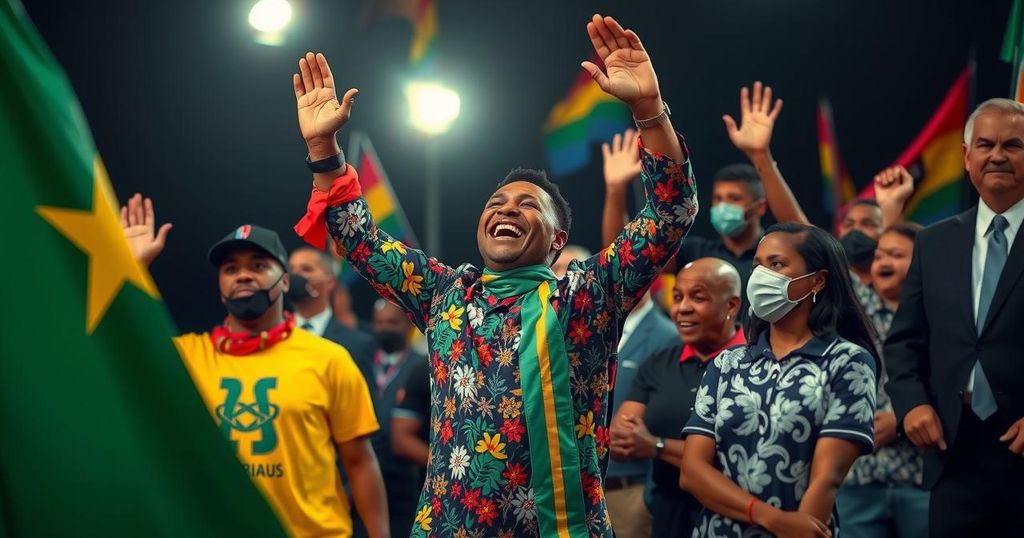The opposition coalition in Mauritius has decisively won the recent elections, capturing all parliamentary seats and marking a significant political change. Prime Minister Pravind Jugnauth conceded defeat amid corruption allegations against his government. Navin Ramgoolam is set to return as prime minister, highlighting a shift in public sentiment and expectations for governance in the nation.
Mauritius has witnessed a significant political shift following the recent elections, as the opposition coalition has achieved a decisive victory, winning all parliamentary seats. The ruling party, led by Prime Minister Pravind Jugnauth, acknowledged their defeat early in the vote tallying process, suggesting an overwhelming loss based on initial results from the 21 constituencies. This election marks a pivotal moment for the nation as Navin Ramgoolam, who has previously held the position of prime minister, prepares to assume office once more. The electoral results, confirmed by various constituencies across the country, indicate the absence of any wins for the governing coalition, which sought a new five-year term amid rising allegations of corruption and leaks implicating officials in scandals. Prime Minister Jugnauth, in his concession speech, remarked on the populace’s decision to alter its leadership, expressing hopes for the nation’s future under the incoming administration. Official confirmation of additional parliamentary seats is anticipated, but the opposition’s majority remains clear. As Mauritius moves forward from this election, which attracted over a million registered voters, the nation continues to be viewed as one of Africa’s most stable democracies. The recent electoral outcomes will undoubtedly impact the country’s governance and its commitment to transparency and economic development.
The recent election in Mauritius marks a significant change in the political landscape of the island nation, located approximately 2,000 kilometers off the eastern coast of Africa. Known for its strong democratic framework and stable governance since gaining independence from the United Kingdom in 1968, Mauritius has developed a robust economy primarily focused on finance, tourism, and agriculture. The ruling coalition led by Prime Minister Pravind Jugnauth faced substantial scrutiny and corruption allegations, ultimately contributing to its defeat by the opposition, the Alliance for Change coalition, led by Navin Ramgoolam. This election is notable not only for the overwhelming victory of the opposition but also for its implications on Mauritian politics, where public opinion has decisively shifted towards a demand for new leadership and accountability following the controversies surrounding the outgoing government.
In conclusion, the recent elections in Mauritius have culminated in a remarkable landslide victory for the opposition coalition, signaling a profound rejection of the current government. With the return of Navin Ramgoolam to the position of prime minister, there lies an opportunity for renewed governance focused on integrity and democratic principles. As the nation prepares for its new leadership, it remains essential to monitor the changes that may arise in policy and public trust in the government moving forward.
Original Source: abcnews.go.com






